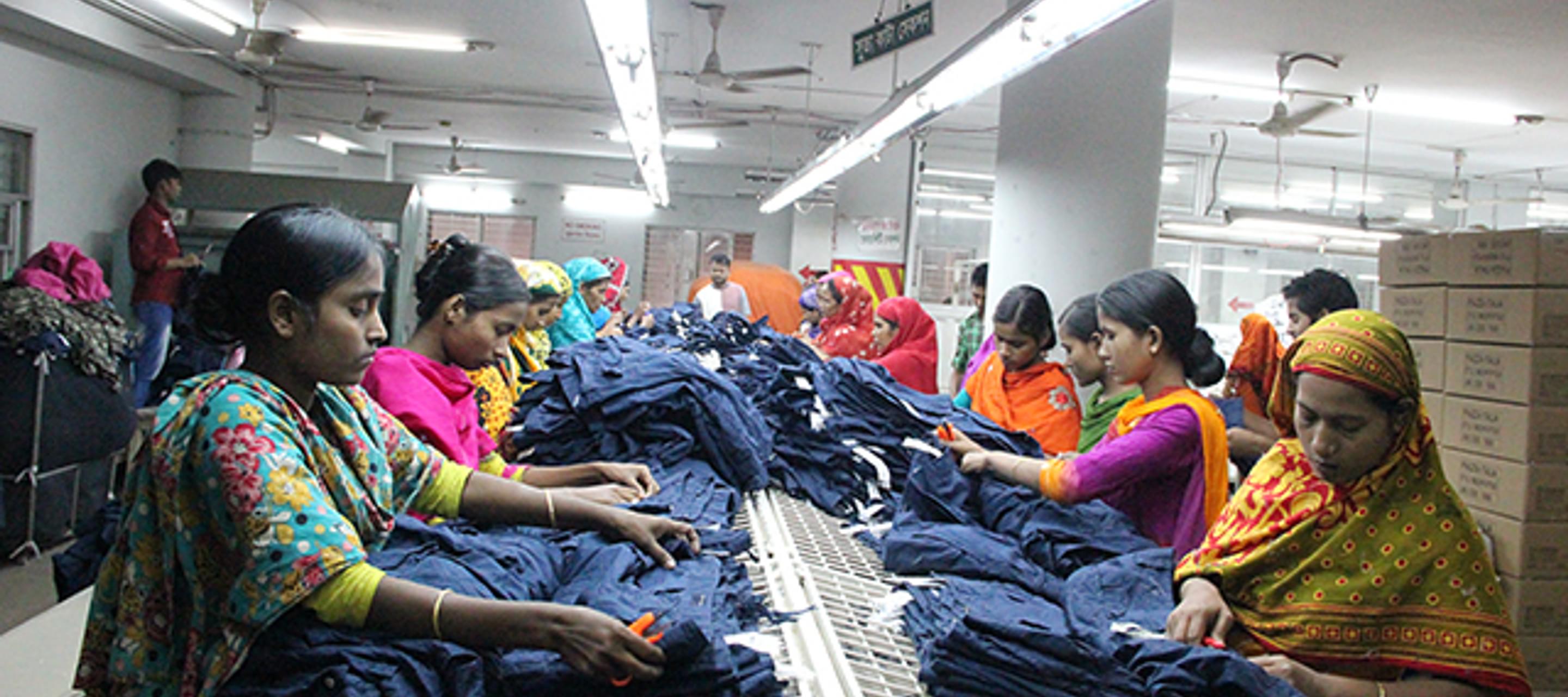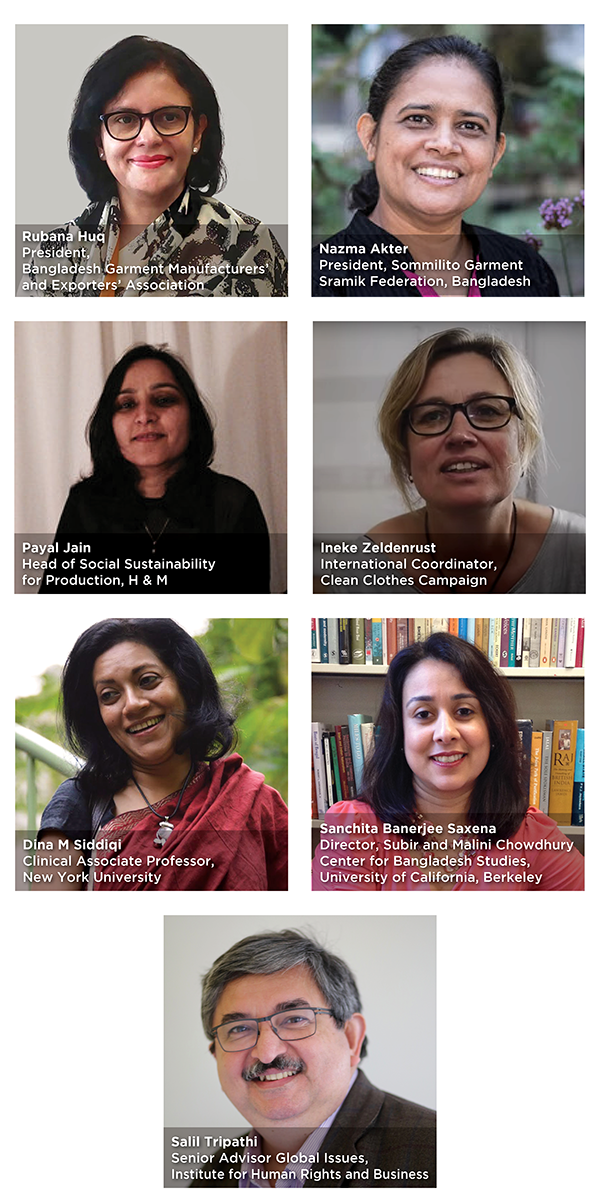From Fragility to Resilience - The Unique Position of Bangladesh in Global Supply Chains

In this discussion, IHRB and The Subir and Malini Chowdhury Center for Bangladesh Studies at the University of California, Berkeley will look at the impacts on workers of the disruption the coronavirus pandemic has triggered across global supply chains, with a special focus on Bangladesh.
Workers in supply chains have increased vulnerability due to the collapse of global markets. Many industries are affected, but Bangladesh's case is unique. Bangladesh is a leading manufacturer of readymade garments in the world, and the sector is a major export earner for the country. Women form an overwhelming majority of the workforce, and the industry has been instrumental in many families lifting themselves out of poverty. However, following the alarming drop in consumption worldwide due to the COVID-19 crisis, many major brands have walked away from their contractual obligations. Many local factories in Bangladesh are unable to pay their workers, being forced to close, and creating the prospect of mass unemployment. Buyers are blaming the markets; local manufacturers are claiming to be helpless; workers are seeking justice.
Thursday 7th May 2020, 5am PST/8am EST/1pm BST/6pm Dhaka
Featuring

- Payal Jain, Head of Social Sustainability for Production, H & M (Hong Kong)
- Dina M Siddiqi - Clinical Associate Professor, New York University (NYC)
- Ineke Zeldenrust - International Coordinator, Clean Clothes Campaign (Amsterdam)
- Nazma Akter - President, Sommilito Garment Sramik Federation, Bangladesh (Dhaka)
- Rubana Huq - Managing Director, Mohamedi Group, and president, Bangladesh Garment Manufacturers' and Exporters' Association (Dhaka)
- Sanchita Banerjee Saxena - Director, Subir and Malini Chowdhury Center for Bangladesh Studies, University of California, Berkeley (California)
- Salil Tripathi - Senior Advisor Global Issues, Institute for Human Rights and Business (NYC)
Hosted by
Co-hosted with the Subir and Malini Chowdhury Center for Bangladesh Studies, University of California, Berkeley

In a special series of online discussions intended to inspire and inform action, IHRB and partners examine the responsibilities of companies for the human rights of workers and affected communities during the COVID-19 pandemic. The first in the series looks at the international policy context and the spotlight the pandemic has shone on modern employment relationships and social safety nets. The second analyses the crisis as it affects workers in global supply chains, with a special focus on Bangladesh. The third in the series focuses on the immediate human rights implications of trading commodities.
Photo: Flickr/NYU Stern BHR



